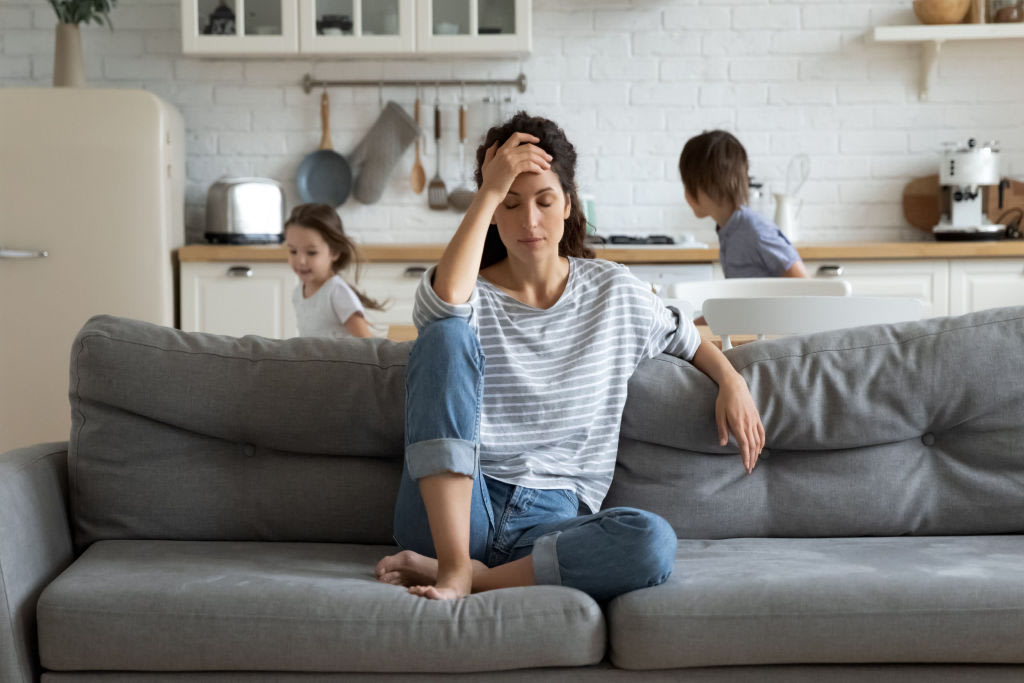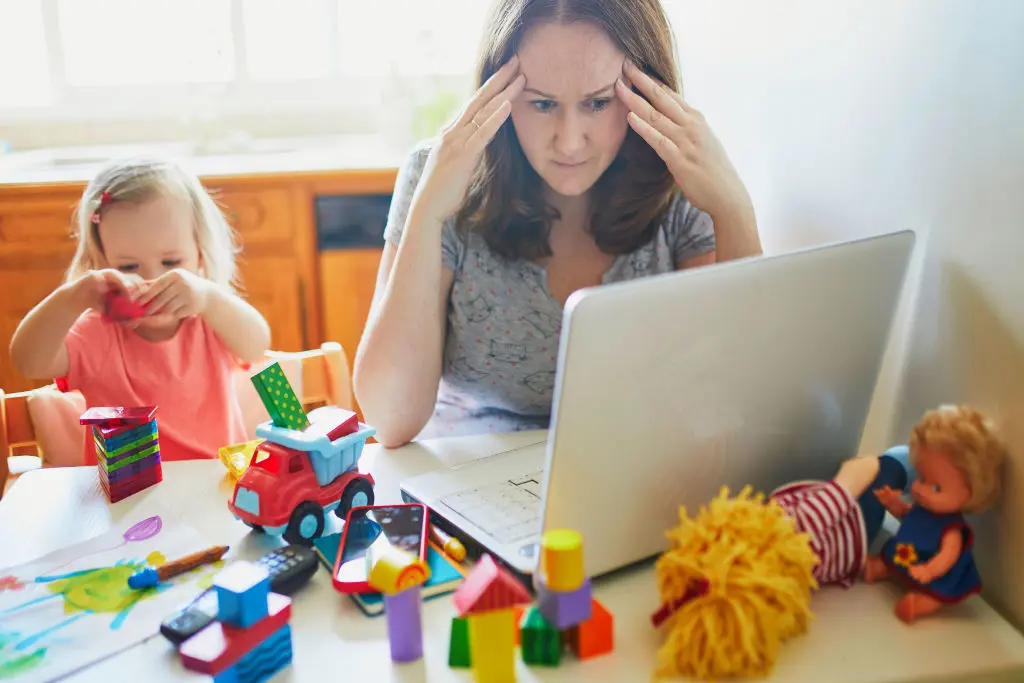Could You Be Experiencing Parental Burnout?

August 17, 2022 - Updated August 26, 2023

We know that burnout can leave us feeling physically and mentally exhausted, impacting everything from how we perform at work to our exercise routine. But did you know parental burnout could be straining your relationship with your family?
Recent research from The Ohio State University points to a parental burnout epidemic impacting working parents, as the challenges of juggling caregiving responsibilities with professional obligations have been exacerbated by the Covid-19 pandemic.
While 66% of parents reported being burnt out, working mothers were uniquely impacted, with the researchers pointing to strong associations between being female and experiencing this unique type of exhaustion.
Other factors that might lead to parental burnout include the number of children you have living at home and parenting children that have been diagnosed with anxiety, ADHD or that you believe might have an undiagnosed mental health disorder.
The connection between burnout and parenting
While burnout isn’t currently a classified medical condition, it was recognised by the World Health Organisation (WHO) in 2019 for its impact on people’s professional lives, with the WHO defining it as being characterised by three experiences:
Feelings of energy depletion or exhaustion
Increased mental distance from one’s job, or feelings of negativism or cynicism related to one’s job
Reduced professional efficacy
Most of the research exploring burnout to date has concentrated on professional burnout, but studies are now exploring its effect on parenting. After all, it’s not as if feeling burnt out from your job is something you can switch off as soon as the work day is done!
Although this recent research pointed to the impact of the Covid-19 pandemic on working parents, studies from as early as 2018 have also highlighted the parental burnout phenomenon.
One study, which aimed to give a voice to exhausted mothers and better understand the experience of exhaustion in relation to parenting, highlighted that although parental and professional burnout share some key characteristics, parental burnout involves the following aspects:
Physical and emotional exhaustion
Emotional distancing from one’s children
A sense of incompetency when it comes to parenting
This experience can also be accompanied by an added sense of guilt, shame or loneliness. The above study also sought to differentiate parental burnout from postpartum depression, with burnout experienced by the parents of children over 18 months of age.
Parental burnout doesn’t just negatively impact the parents - it’s also been associated with behavioural issues in children such as children’s internalising (e.g. anxiety, low self-esteem and eating disorders), externalising (e.g. stealing, physical aggression or breaking rules) and attention issues.

What can you do to relieve the burden?
Reading this article and nodding along? You’re definitely not alone. But what can you do about it?
If you’re feeling burnt out at home, The Ohio State University study compiled some evidence-based strategies that can help decrease stressors every day.
Self-care isn’t selfish
For many mums, indulging in a bit of me-time feels like a luxury they just can’t afford. But you should never feel guilty about taking the time to look after yourself and do things that make YOU feel good. It might be some sacred alone time in the bath, a five-minute meditation or a quick dance party in the lounge room. Find time in your day for the little things that bring you joy.
Be kind
We teach our kids to be kind, but how kind are we to ourselves? Show yourself the kindness and generosity of spirit that you would show a loved one.
Talk to someone about how you’re feeling
When someone you trust asks you how you are, give them an honest answer. Starting a conversation about what’s going on beneath the surface can help you feel connected, supported and begin an important dialogue about your mental health.
Build your resilience
Easier said than done, right? The Ohio State University recommends a few methods, such as practicing mindfulness, developing cognitive-behavioural skills, performing deep abdominal breathing and embracing affirmations and gratitude.
There’s no shame in asking for help
Taking care of ourselves - inside AND out - is so important. Not only for us as individuals, but also for our family and wider community. There is no shame in reaching out if you need help, especially if your burnout and mental health is negatively interfering with your daily life in a negative way. If you need help, reach out to your healthcare professional. It can take an enormous amount of strength to ask for help when you need it, but it’s always so worth it.

A more empowered you starts with Sweat, and our editorial team is here to bring you the latest fitness tips, trainer recommendations, wellbeing news, nutritional advice, nourishing recipes and free workouts.
* Disclaimer: This blog post is not intended to replace the advice of a medical professional. The above information should not be used to diagnose, treat, or prevent any disease or medical condition. Please consult your doctor before making any changes to your diet, sleep methods, daily activity, or fitness routine. Sweat assumes no responsibility for any personal injury or damage sustained by any recommendations, opinions, or advice given in this article.
Wellbeing